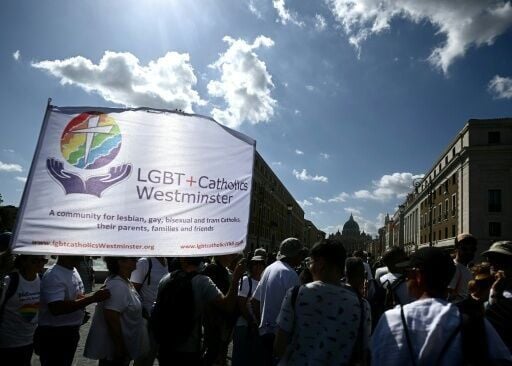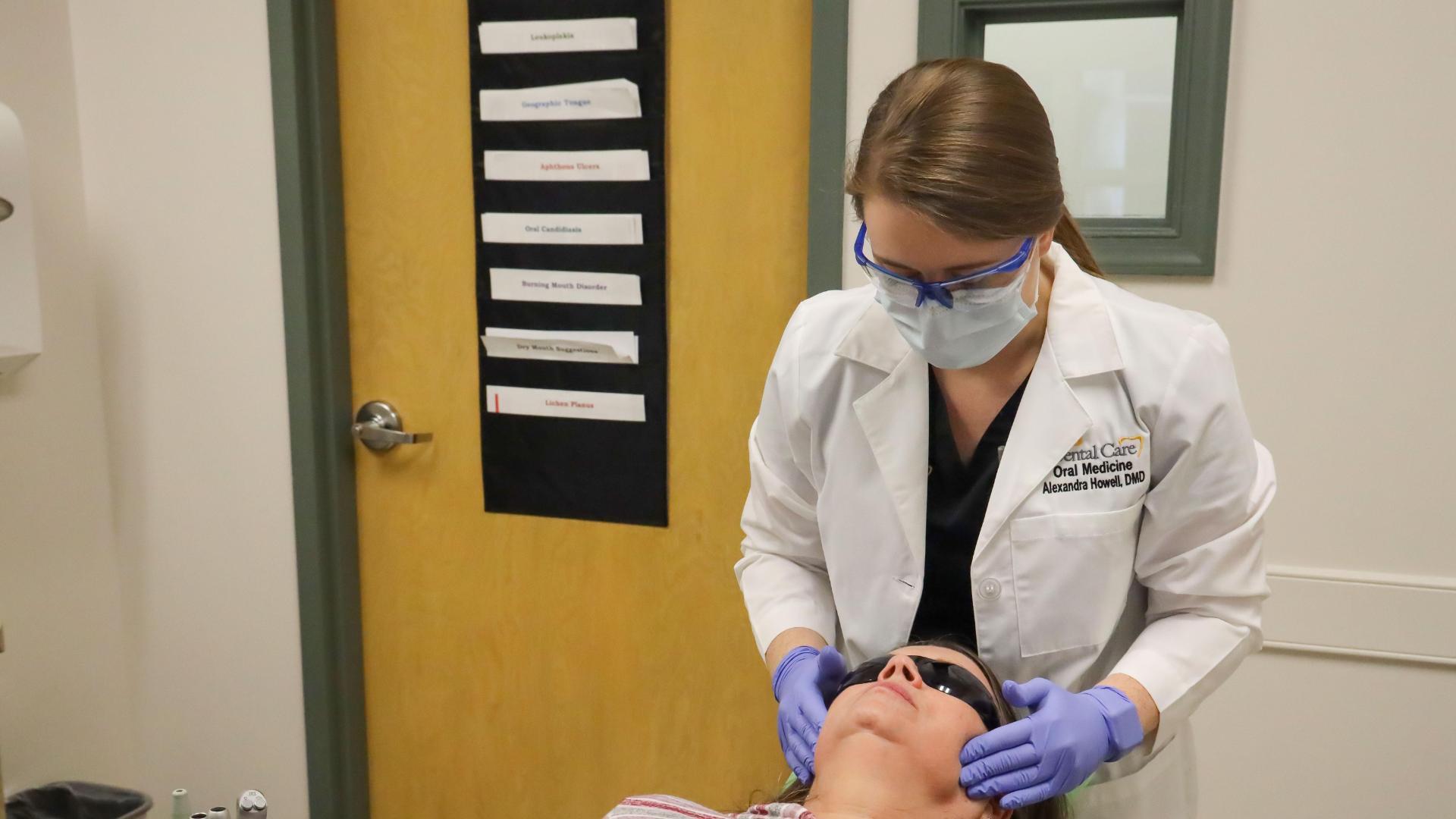Report on Papal Statements Regarding Social Inclusion and Sustainable Development Goals
Introduction
In recent interviews for a new biography, Pope Leo XIV articulated a pastoral strategy that aligns with several key United Nations Sustainable Development Goals (SDGs), particularly those concerning social inclusion, equality, and peaceful societies. While maintaining established institutional doctrine, the Pope’s remarks emphasize a commitment to universal welcome and the reduction of social polarization, framing these efforts within the context of human dignity and societal stability.
Alignment with SDG 10: Reduced Inequalities
Pope Leo XIV’s approach directly addresses the core principles of SDG 10, which aims to reduce inequality by promoting the social inclusion of all, irrespective of identity. His policy is founded on the principle of universal welcome, echoing his predecessor’s call for “todos, todos, todos” (everyone, everyone, everyone).
- Principle of Universal Inclusion: The Pope stated that individuals are invited into the Church based on their inherent dignity as a “son or daughter of God,” rather than any specific identity. This aligns with SDG Target 10.2, which calls for empowering and promoting the social, economic, and political inclusion of all.
- Pastoral Welcome: The commitment is to ensure “everyone’s invited in,” fostering an environment of acceptance for marginalized communities, including LGBTQ+ individuals.
- Focus on Human Dignity: The basis for inclusion is not contingent on identity but on a shared humanity, a principle that seeks to reduce the social barriers that create and sustain inequality.
Perspective on SDG 5: Gender Equality and Family Structures
The Pope’s statements intersect with the global dialogue surrounding SDG 5 (Gender Equality), particularly in his reaffirmation of the institution’s traditional teachings on marriage and family. He positions the “traditional family” as a vital component for social stability and development.
- Upholding Institutional Doctrine: The Pope indicated it is “highly unlikely” that Church teaching on sexuality and marriage will change in the near future.
- Strengthening the Family Unit: He emphasized the need to recognize and strengthen the family, defined as “father, mother, and children,” as the “basic building block” of society. This unit is presented as the primary institution for learning love, respect, and communion.
- Clarification on Blessings: The Pope referenced the document Fiducia Supplicans to clarify that while individuals can be blessed, the institution does not endorse ritualized blessings for same-sex unions, thereby maintaining its doctrinal stance on marriage as it relates to SDG 5’s broader targets on equality.
Contribution to SDG 16: Peace, Justice, and Strong Institutions
A significant focus of the Pope’s remarks was on fostering peaceful and inclusive societies, a direct goal of SDG 16. He identified social polarization as a key challenge and outlined a strategy centered on dialogue and mutual respect to build social cohesion.
- De-escalation of Polarization: The Pope explicitly stated he is “trying not to continue to polarize or promote polarization in the church,” recognizing that issues surrounding LGBTQ+ identity are highly divisive.
- Promoting Mutual Respect: He advocated for a process where people “get to know one another and respect one another” before addressing contentious doctrinal points, fostering the peaceful dialogue central to SDG 16.
- Global Perspectives: The Pope noted that a “western obsession with sexuality” is not a primary global concern, highlighting the need for culturally sensitive dialogue that avoids imposing a single region’s priorities, thereby promoting a more inclusive global partnership.
- Institutional Role: The Church’s role is framed as one that accepts and receives all individuals, ensuring that its institutions (e.g., the sacrament of confession) remain accessible and non-judgmental spaces for all people.
Stakeholder Commentary and Dialogue
The report includes commentary from Jesuit Father James Martin, a prominent advocate for LGBTQ+ Catholics, who views the Pope’s approach as a hopeful continuation of his predecessor’s policies. This engagement represents an internal dialogue crucial for the evolution of strong and responsive institutions (SDG 16). Martin highlighted the Pope’s use of inclusive terminology (“LGBTQ”) as “a step forward” in fostering respectful dialogue, even amid doctrinal continuity.
Analysis of Sustainable Development Goals in the Article
1. Which SDGs are addressed or connected to the issues highlighted in the article?
-
SDG 10: Reduced Inequalities
- Explanation: The article’s central theme is the social inclusion of LGBTQ+ individuals within the Catholic Church. This directly relates to SDG 10, which aims to reduce inequalities within and among countries by promoting the social inclusion of all, irrespective of their status. The Pope’s message of welcoming everyone, as emphasized by the phrase “todos, todos, todos,” and his call to “accept others who are different than we are,” are core to the principle of reducing social inequality for a marginalized group.
-
SDG 16: Peace, Justice and Strong Institutions
- Explanation: The article discusses the internal policies, attitudes, and decision-making processes of a major global institution—the Catholic Church. SDG 16 focuses on building effective, accountable, and inclusive institutions at all levels. The Pope’s effort to manage a “highly polarizing” issue, promote respectful dialogue (“let’s get to know one another and respect one another”), and ensure the institution is welcoming and inclusive, aligns with the goal of fostering peaceful and inclusive societies through strong institutions.
2. What specific targets under those SDGs can be identified based on the article’s content?
-
Under SDG 10: Reduced Inequalities
- Target 10.2: “By 2030, empower and promote the social, economic and political inclusion of all, irrespective of age, sex, disability, race, ethnicity, origin, religion or economic or other status.”
- Connection: The article directly addresses this target by focusing on the social and religious inclusion of LGBTQ+ people. The Pope’s statement, “Everyone’s invited in, but I don’t invite a person in because they are or are not of any specific identity,” is a clear call for inclusion irrespective of “other status,” which in this context refers to sexual orientation and gender identity.
- Target 10.3: “Ensure equal opportunity and reduce inequalities of outcome, including by eliminating discriminatory laws, policies and practices and promoting appropriate legislation, policies and action in this regard.”
- Connection: While the article states that the Church’s doctrine (a form of policy) is unlikely to change, it strongly advocates for changing “attitudes” and practices to be more accepting. The Pope’s emphasis on welcome and respect is a promotion of action intended to reduce inequalities of outcome in terms of social acceptance and belonging within the Church community, even if formal rules remain.
- Target 10.2: “By 2030, empower and promote the social, economic and political inclusion of all, irrespective of age, sex, disability, race, ethnicity, origin, religion or economic or other status.”
-
Under SDG 16: Peace, Justice and Strong Institutions
- Target 16.7: “Ensure responsive, inclusive, participatory and representative decision-making at all levels.”
- Connection: The article mentions the “Synod of Bishops on Synodality,” a participatory process within the Church where the polarizing nature of LGBTQ+ issues was evident. The Pope’s approach of listening and trying to avoid further polarization shows an effort to make the institution’s handling of sensitive issues more inclusive and responsive to different viewpoints within its community.
- Target 16.b: “Promote and enforce non-discriminatory laws and policies for sustainable development.”
- Connection: The Pope’s stance is presented as an institutional policy of welcome. He states, “The individuals will be accepted and received.” This promotion of a non-discriminatory attitude and practice at the institutional level, separating the individual from the formal doctrine, aligns with the spirit of this target.
- Target 16.7: “Ensure responsive, inclusive, participatory and representative decision-making at all levels.”
3. Are there any indicators mentioned or implied in the article that can be used to measure progress towards the identified targets?
The article does not mention any official SDG indicators, but it implies several qualitative indicators that could be used to measure progress:
- Change in Attitudes: The Pope explicitly states, “we have to change attitudes before we even think about changing what the Church says.” An implied indicator would be the measured shift in attitudes of acceptance and respect towards LGBTQ+ individuals among clergy and laity.
- Reduction in Polarization: The article notes that the Pope is “trying not to continue to polarize or promote polarization in the church.” A reduction in contentious and divisive rhetoric on this topic within the Church would be a key indicator of progress.
- Adoption of Inclusive Language: The article highlights the significance of the Pope’s terminology. Jesuit Father James Martin praises the Pope’s use of “LGBT” and “LGBTQ,” calling it “a step forward.” Therefore, the adoption and normalization of respectful and inclusive language within official and unofficial Church communications can be seen as a measurable indicator.
- Implementation of Welcoming Practices: The Pope’s call for an “attitude of welcome” and to “accept and receive” individuals suggests that progress could be measured by the extent to which parishes and dioceses implement pastoral practices that are explicitly welcoming to LGBTQ+ Catholics, regardless of the status of official doctrine.
4. Table of SDGs, Targets, and Indicators
| SDGs | Targets | Indicators (Implied from the article) |
|---|---|---|
| SDG 10: Reduced Inequalities |
|
|
| SDG 16: Peace, Justice and Strong Institutions |
|
|
Source: cruxnow.com







